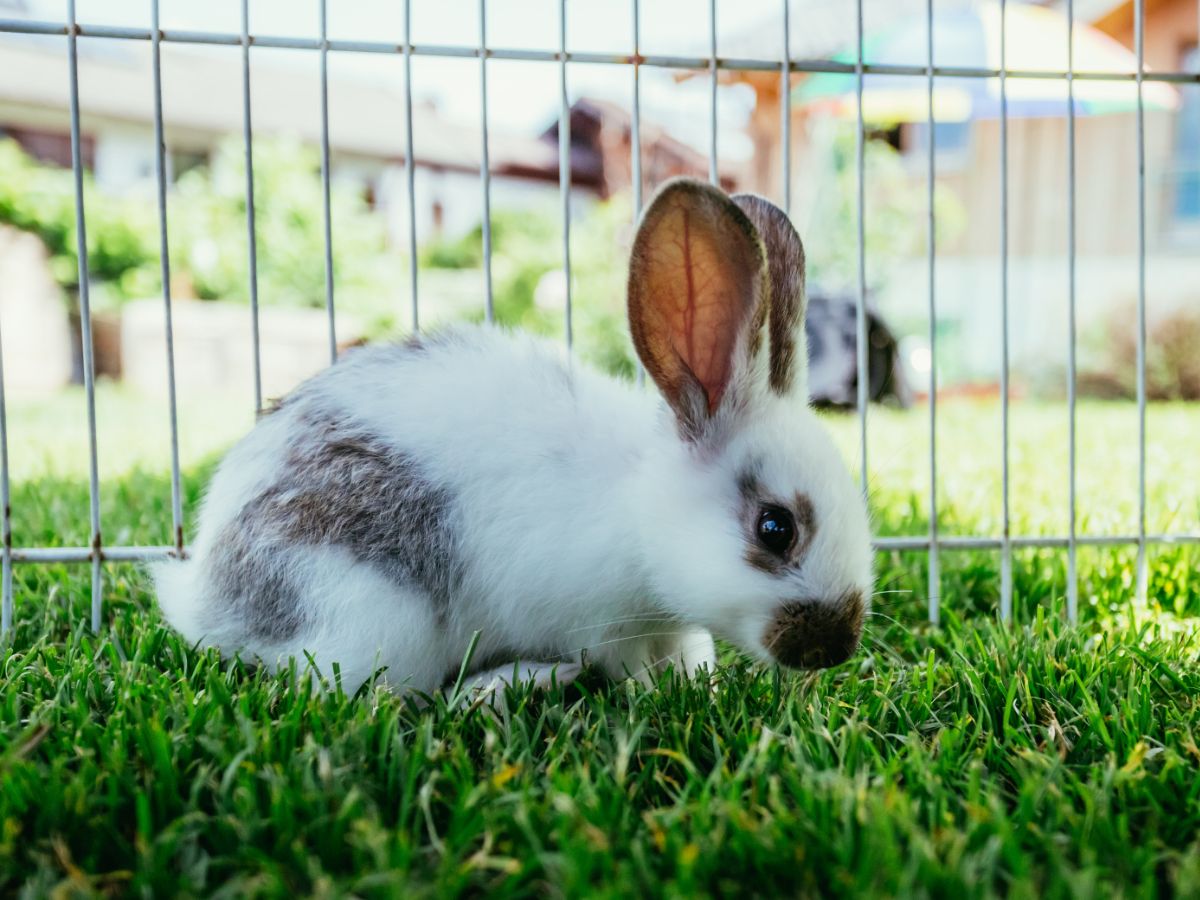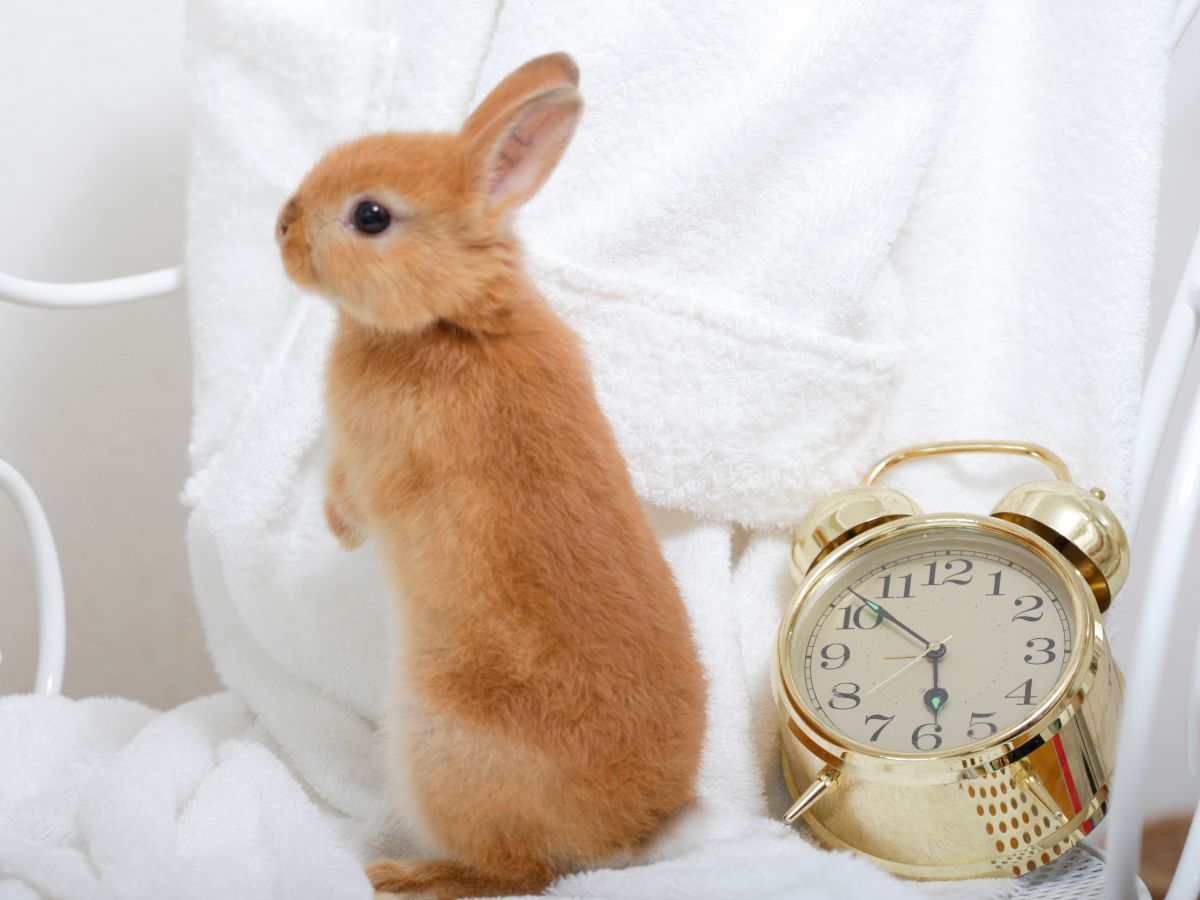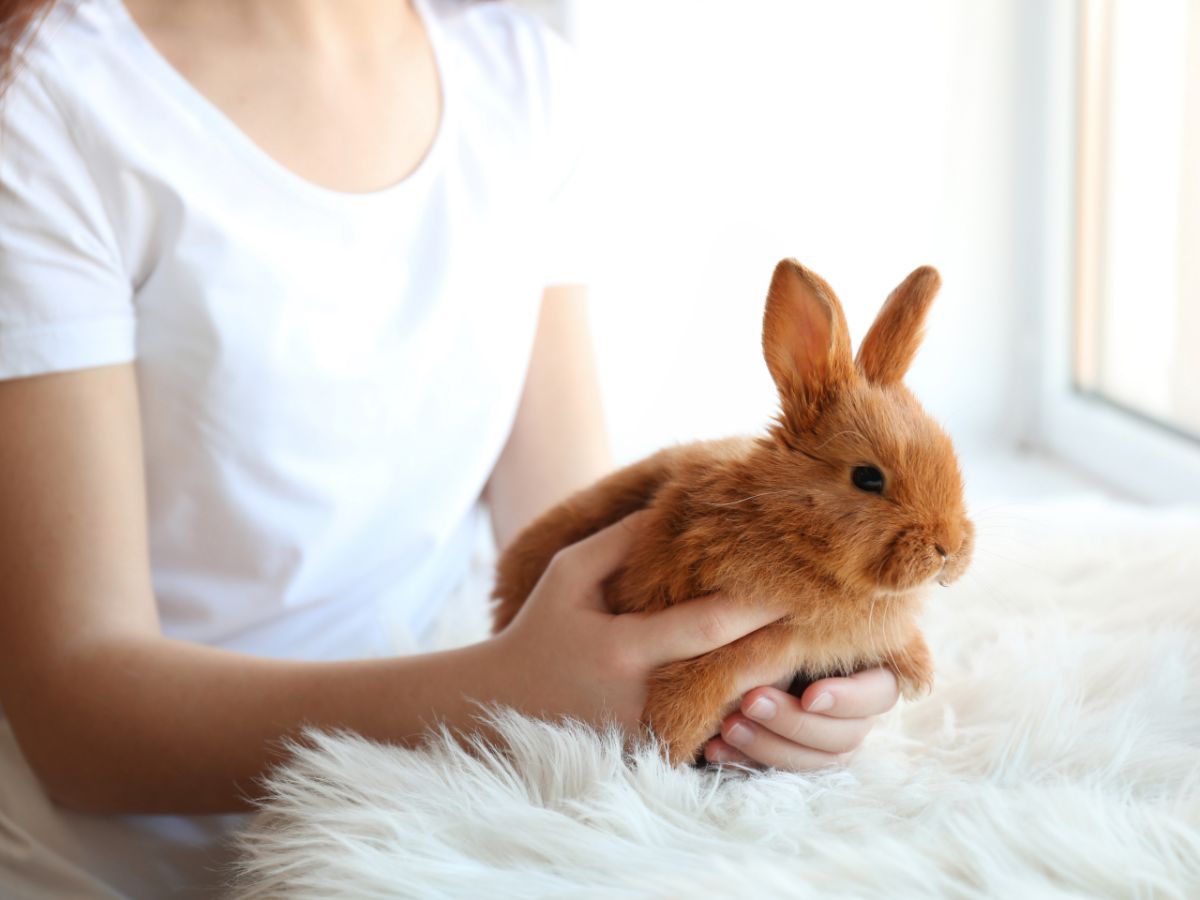When you adopt or purchase a rabbit, one of the first questions you need to ask yourself is where the ideal place would be to place them. However, many rabbit owners have strong opinions on this subject and are not afraid to share them! Should you keep your rabbit indoors or outdoors, and what are the advantages and disadvantages?
There are things to consider when deciding to keep your rabbit indoors or outdoors, such as keeping them safe and healthy inside but withholding them from their instincts. Keeping your rabbit outdoors will ensure its natural lifestyle, but they could become prey, get cold, and become sick.
Knowing the advantages and disadvantages of indoor and outdoor living arrangements for your rabbit could help you decide what’s best. Stick around as we discuss the pros and cons of each!
Contents
Indoor And Outdoor Rabbits
Rabbits make great house companions and will be happy living in even the smallest apartments or homes. However, keeping them outdoors may enable them to live to their fullest potential if provided with a safe enclosure or cage.
Armed with the information on the pros and cons of indoor and outdoor arrangements, you will come to the best conclusion to benefit you and your rabbit.
Let’s take a closer look at the pros and cons of each setup and, more importantly, how to provide your rabbit with the best possible home!
The Pros Of Keeping Your Rabbit Indoors
Rabbits have sweet and timid personalities, and spending time with them after a long and stressful day could make your whole day seem better.
Below are the pros of keeping your adorable furry bunny indoors:
Health Issues Are Noticed Quicker With Indoor Rabbits
Because animals fall prey to many animals, they have developed excellent strategies for hiding illness or pain.
The more time you spend engaging and playing with your rabbit, the more likely you would be to notice any subtle changes in behavior that could be health-related.
When a rabbit has been litter box trained, and your house is bunny-proofed, they can freely roam in your house like a cat or dog!
However, most people will keep them in a suitable cage or secure area when they cannot supervise them.
Indoor Rabbits Are Protected From Harsh Weather
Keeping your rabbits indoors will protect them from harsh weather circumstances, especially if you live in an area prone to storms and heavy rain.
This also includes extreme heat, which could cause a rabbit to overheat and die from heatstroke.
Indoor Rabbits Are Protected From Predators
Wild rabbits constantly need to be alert and cautious about their surroundings. They fall prey to many animals, including cats, dogs, and owls, and they could even be run over by cars on the street.
By keeping your rabbit indoors, they will be safe and sound from the dangers of the outside world.
Indoor Rabbits Will Live Longer
Rabbits who live indoors have a much lower risk of being exposed to mosquito bites, fleas, mites, and parasites. Studies show that rabbits who live indoors live longer than most kept rabbits outdoors.
You Will Have A Better Chance To Bond With An Indoor Rabbit
Rabbits are social animals, and they love to interact with their owner and will show signs of excitement when their owner comes home from a long day of work.
Keeping your rabbit indoors will ensure a much better relationship between the two of you, and they will be more likely to bond with other people, such as your friends or family members.
Indoor Rabbits Are In A Controlled Environment
When your rabbit is kept inside, you can change the environment to accommodate their needs. This will also allow you as the owner to keep a closer eye on their cage, cleaning it when it becomes too dirty and keeping the environment hygienic.
Indoor Rabbit Cages Are Less Expensive
Perhaps the most significant advantage you can reap from keeping your rabbit inside is that you will spend much less money on a cage.
Indoor cages could be more secure than outdoor cages, and it comes with a much better price tag too! You will reap all the benefits at a much lower cost, so it sounds like a win-win!
The Cons Of Keeping Your Rabbit Indoors
Of course, there will be some downsides when you decide to keep any animal inside your home, especially a rabbit.
Let’s look at a few of the cons to keeping your rabbit indoors:
Your House Could Become Smelly With An Indoor Rabbit
Although keeping your rabbit’s cage inside will help you to clean it more often, you will have to do daily upkeep to avoid any foul odors.
Tasks such as cleaning the litter box daily, picking up food scraps, and doing a deep clean each week could become overwhelming, especially if you don’t have enough time.
An Indoor Rabbit Will Chew On Everything
It is in a rabbit’s instinct to chew, and if your rabbit has access to your home, they will chew on your cords, furniture, house trimming, and everything else they can get their tiny paws on!
This wouldn’t always be an issue if your rabbit only runs around with your supervision.
Indoor Rabbits Might Become Cared By Your Other Pets
If you have multiple other pets in your home, such as cats or dogs, your rabbit might be startled by them and become defensive or withdrawn from you completely.
Rabbits should never be left alone with other pets, especially cats and dogs, which could become difficult for you to handle.

The Pros Of Keeping Your Rabbit Outdoors
Rabbits might be domesticated animals, but they were always seen as wild animals. When you keep your rabbit outdoors, you will provide the rabbit with some benefits, including:
An Outdoor Rabbit Will Engage In Its Instincts
Rabbits are highly curious creatures whose instincts tell them to explore, burrow, dig, and chew on everything they can! This type of behavior is regarded as destructive, and it is unwelcome in many pet parents’ homes.
They will chew the cords on your most expensive electronic items, burrow through your rugs or couch, and chew on your furniture or woodwork.
Keeping them outside will allow them to engage in this natural behavior, making for a happy, mischievous bunny!
An Outdoor Rabbit Will Have A More Natural Lifestyle
Outdoor rabbits with a proper enclosure will live a natural life while enjoying the freedom of breathing in the fresh air.
Most people can also provide their rabbits with a larger outside area, which allows them to run and jump while having access to dirt and grass!
The Cons Of Keeping Your Rabbit Outdoors
When you keep your rabbit outdoors, you will have to be willing to put in enough effort to make it work. Let’s look at some of the cons to keeping your furry friend outside:
Your Outdoor Rabbit Needs To Be Protected
If your rabbit is kept outside in an enclosure or cage, it becomes your job to protect them from harmful predators and harsh weather elements.
You need to seriously consider making their enclosure as secure as possible, with enough insulation to keep them cozy.
It is also advised that all rabbits should be moved inside during extreme weather, as it could become too hot or too cold for them to survive. This could result in you having to make space in your home anyways, even though your rabbit lives outside.
Health Issues Goes Unnoticed In Outdoor Rabbits
Keeping your rabbit outdoors makes it significantly more difficult to notice any behavioral changes that could lead to health issues. Most of the time, when you notice them, it would already be too late for your rabbit.
You may also get sloppy with your cage cleaning routine, as the cage isn’t in your home, which could cause your rabbit to become sick or unhappy due to improper hygiene circumstances.
Conclusion
Knowing whether indoors or outdoors will be the best arrangement for your rabbit depends mainly on where you live, your weather circumstances, and the amount of space you have.
If you want to give your rabbit the best shot at life while building a close bond, it may be better for you to keep it indoors!




